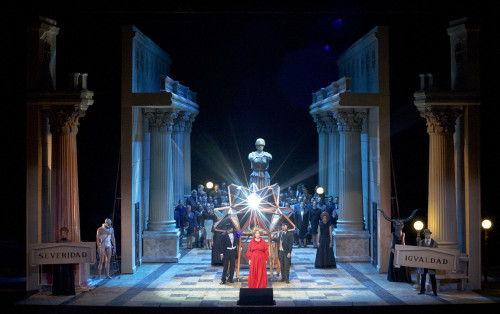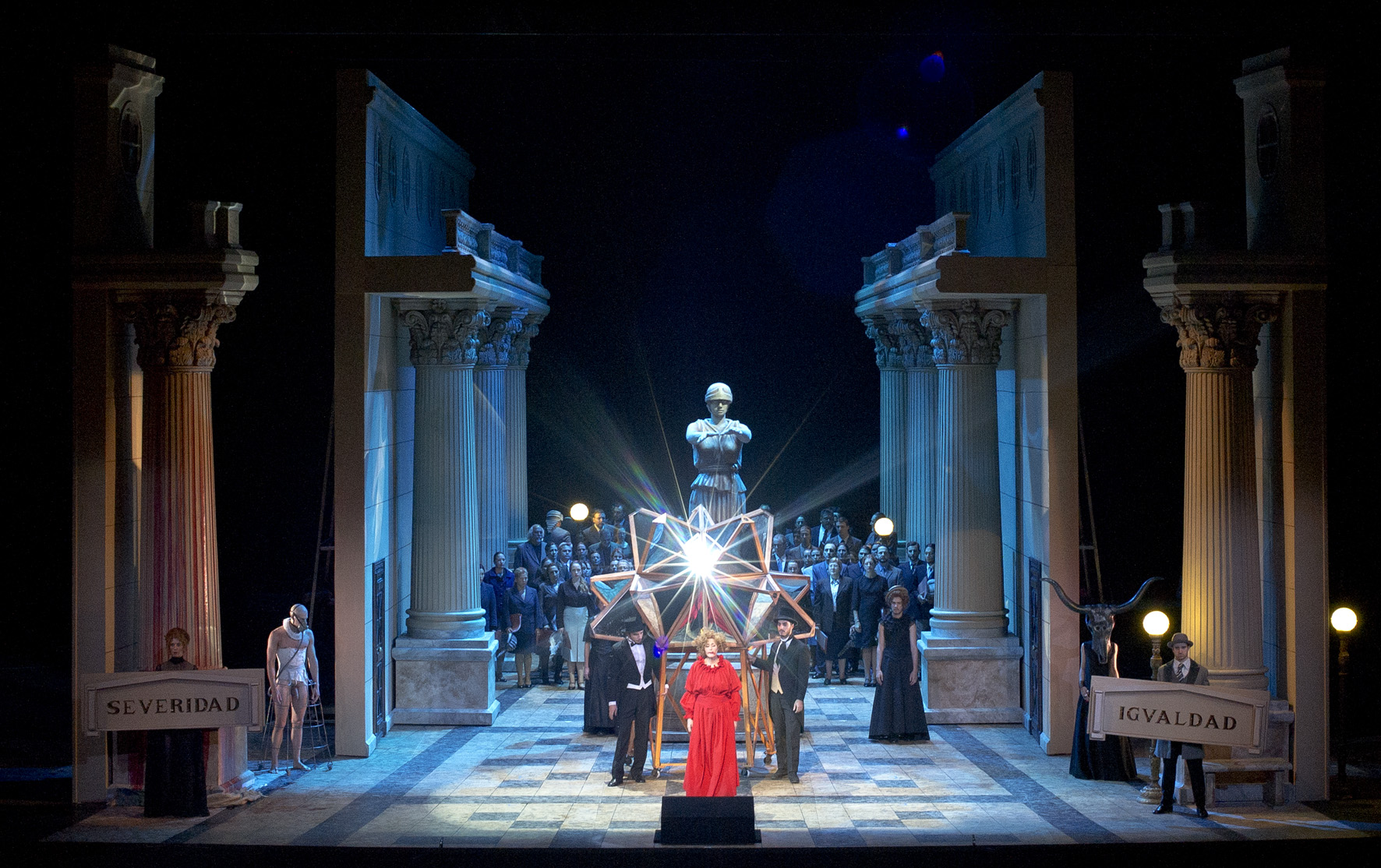 Argentina Ginastera, Beatrix Cenci: Soloists, Chorus and Orchestra. Conductor: Guillermo Scarabino, Teatro Colón, Buenos Aires. 18.3.2016. (JSJ)
Argentina Ginastera, Beatrix Cenci: Soloists, Chorus and Orchestra. Conductor: Guillermo Scarabino, Teatro Colón, Buenos Aires. 18.3.2016. (JSJ)

Ginastera, Beatrix Cenci
Production:
Director: Alejandro Tantanian
Sets/costumes: Oria Puppo
Lighting: David Seldes
Projections: Maxi Vecco
Chorus: Miguel Martínez
Cast:
Beatrix Cenci: Mónica Ferracani / Daniela Tabernig
Count Francisco Cenci: Victor Torres / Leonardo Estevez
Lucrezia: Alejandra Malvino / María Luján Mirabelli
Bernardo: Florencia Machado / Rocío Arbizu
Orsino: Gustavo López Manzitti / Fernando Chalabe
Andrea: Mario De Salvo / Emiliano Bulacios
Giacomo: Alejandro Spies
3 Guests: Sebastián Sorarrain, Iván Maier, Victor Castells
Olimpio: Luis Alejandro Escaño
Marzio: Ernesto Donegana
2016 is the centenary of the birth of one of the most noted Argentine composers, Alberto Ginastera. And kicking off a year of celebrations – and the Buenos Aires opera season – at the Teatro Colón was his third and last opera, Beatrix Cenci. (Note not the start of the Colón’s season as for some reason this falls outside the subscription series.)
Dating from 1971 and premiered that year under Julius Rudel in the John F. Kennedy Center for the Performing Arts in Washington, with a single 1992 production at the Colón, Beatrix Cenci in two acts is presented as a continuous work some 90 minutes in length.
The libretto by William Shand and Alberto Girri is based on Stendhal’s ‘Chroniques italiennes’ and Shelley’s play ‘The Cenci’, and covers the final decline of the Cenci family in Rome at the end of the 16th century. After a ball to celebrate the deaths of two of his sons, the tyrannical and already hated Count Cenci violates his daughter Beatrix and with her stepmother Lucrezia and brothers Bernardo and Giacomo they decide he should be killed. However, his body is discovered some months later and Beatrix is held accountable and made to pay with her life.
Ginastera embues this intense and disturbing made-for-opera drama with his characteristically colourful music, here masterfully brought to its inexorable climax under Guillermo Scarabino, who has studied and written about the composer and his music.
The depth of the horrors was also brought out in the direction of Alejandro Tantanian in the taut but stylistically appropriate scenery by Oria Puppo, with a notable touch the ‘blood’ flowing from a pillar on the Count’s death. However, it did stray all too often to the unnecessarily vulgar with the exaggerated orgy at the ball and the semi-naked (from the waist down) men, and the duplicated characters confounded rather than clarified.
Mónica Ferracani was a powerful Beatrix, well up to the complex vocal challenges. Victor Torres brought the right air to the role of the Count, although was not always comfortably audible.
Alejandra Malvino excelled as Lucrezia and Florencia Machado was a youthful Bernardo, while Gustavo López Manzitti was a firm Orsino, Beatrix’s ex-lover. Solid performances from the other cast members also and from the chorus in its few interpolations.
Lacklustre applause at the end was indicative of the general reception to the production and just three performances were probably sufficient.
Jonathan Spencer Jones
